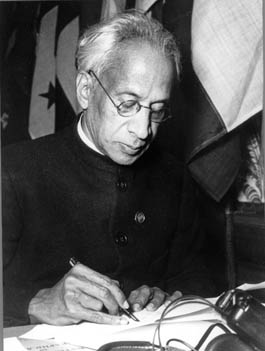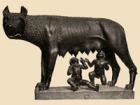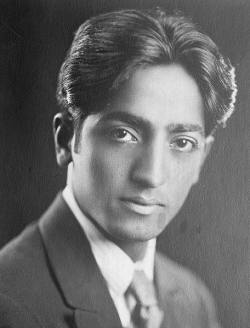
Days ago I was talking with a friend about this blog.
This guy is very sharp-minded and he is always looking north and west, ie always relating to Northern Europeans and to the USA while his attitude towards other regions of the world is not very open-minded in my view, to say the least.
I told him I of course liked the West too but my blog having like a will of its own it kind of brought me to the Far East and to an intense dialogue with the Indians and a few Chinese.
He said:
“How can you connect to your Roman roots while interacting all the time with the Indians & the Chinese, with folks so different from the Romans, the Italians and the Europeans? It is a contradictory behaviour.”
I tried to explain that if I am able to rediscover my heritage I am also able to bring a contribution to others who are diverse. I also said this process is two-ways, ie the same thing can happen at the other side of the dialogue.
He didn’t sound very convinced.
So I remembered a passage by a big Indian thinker. I wonder if this quote can help me to explain things a little further.
Ψ
Sarvepalli Radhakrishnan, an Indian philosopher and statesman, argued in Living with a Purpose (Orient Paperbacks, New Delhi, 1976, p. 9-10):
“Great classics of literature spring from profound depths in human experience. They come to us who live centuries later in vastly different conditions as the voice of our own experience. They release echoes within ourselves of what we never suspected was there.
The deeper one goes into one’s own experience, facing destiny, fighting fate, or enjoying love, the more does one’s experience have in common with the experiences of others in climes and ages.
**The most unique is the most universal.**
The dialogues of Buddha or of Plato, the dramas of Sophocles, the plays of Shakespeare are both national and universal. The more profoundly they are rooted in historical traditions, the more uniquely do they know themselves and elicit powerful responses from others. There is a timeless and spaceless quality about great classics.”

Kalidasa, national & universal
“Kalidasa is the great representative of India’s spirit, grace and genius. The Indian national consciousness is the base from which his works grow. Kalidasa has absorbed India’s cultural heritage, made it his own, enriched it, given it universal scope and significance. Its spiritual directions, its political forms and economic arrangements, all find utterance in fresh, vital, shining phrases.
We find in his works at their best, simple dignity of language, precision of phrase, classical taste, cultivated judgement, intense poetic sensibility and fusion of thought and feeling …. his works belong to the literature of the world. Humanity recognizes itself in them though they deal with Indian themes. In India Kalidasa is recognized as the greatest poet and dramatist in Sanskrit literature … Tradition associates Kalidasa with King Vikramaditya of Ujjayini who founded the Vikrama era of 57 B.C.”
[all font emphasis is from MoR, not from the original text]
Ψ
Note. I am happy I could retrieve this passage. Radhakrishan has been my Indian mentor in some way since my very first trip to India [occurred a long time ago to say the truth.]
A great author and an excellent bridge, it has been said, between Eastern and Western thought. In Wikipedia I read “he wrote books on Indian philosophy according to Western academic standards, and made Indian philosophy worthy of serious consideration in the West”. A western-centric statement possibly but much to the point.
What I mean is that Radhakrishan’s inspired words (he belonging to the great generation that built the Indian nation) can further explain and somewhat be linked to a few ideas expressed in this blog plus elucidate the apparent contradiction my friend told me about.
Ψ
Allow me some ‘idea linking’ now.
1) In my very first post I had written:
“I hope on comments from Western and non-Western people, since Rome and the Romans have a mediation nature that comes from the Mediterranean.” […]
“It is a great privilege to be born and be raised here [in Rome]… to the extent that something must have penetrated, something peculiar and worth to be transmitted, in order to be able, in our turn, to receive.” […]
“In this blog fragments of this special [Roman] identity are inserted in a bottle and sent through the WWW…” […]
2) In xntricpundits‘ valuable blog (now erased by WordPress I don’t know why) I was attracted by this quote by Jiddu Krishnamurthy:
“When you call yourself an Indian or a Muslim or a Christian or a European, or anything else, you are being violent. Do you see why it is violent? Because you are separating yourself from the rest of mankind … a man who is seeking to understand violence does not belong to any country, to any religion, to any political party or partial system…he is concerned with the total understanding of mankind.”
I commented: “Violence is horrible but to me humanity is too abstract: all of us have roots, how can we forget them? I am writing here not because you are just mankind, but because you are Indian …”. Of course J. Krishnamurti’s passage was focusing on how to tackle violence engendered by diversity.
3) In another post I had underlined the importance of reading good books and of how classics of literature can be our best companions. In Poonam’s blog (a good place where, among the rest, she fights against wrongs in India, like the exploitation of untouchables) I had with horrible prolixity commented on a long list of books she had provided (How Many Books Have You Read? ) and I had made a comparison between Joyce and Dante. This guy (or woman?) told me: “It is unfair on your part to compare two authors of different eras …”.
Ψ
Poonam’s posts – the said one and others – have a lot of discussion. Ashish’s posts as well (meet such a great commentator of this blog at the discussion area below.)
I wish to both really all the best since they are a good example of how the young are constructing India’s future.

Related posts:
Conosci te stesso, Γνῶθι σεαυτόν, Nosce te ipsum. Pitagora, Apollo (e Hegel)




